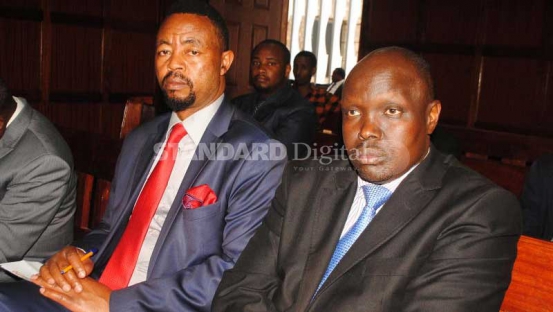×
The Standard e-Paper
Smart Minds Choose Us

Two more cases were filed in the High Court on Monday, bringing to five the number of petitions whose determination will have an impact on next week's repeat presidential election.
Three of the cases are pushing for the abandonment of the October 26 elections. If successful, they could lead to the starting afresh of the presidential election and prolonging of the political crisis.